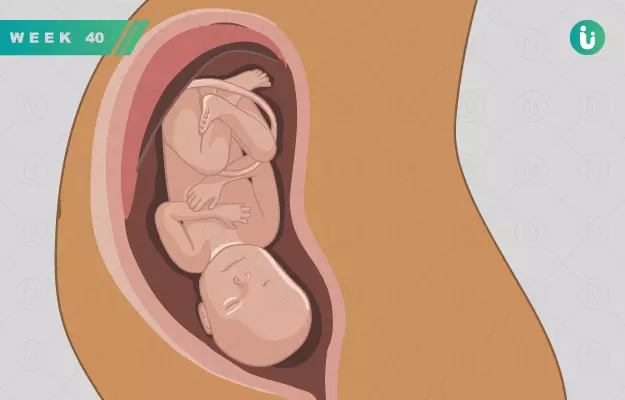Welcome to the 40th week of your pregnancy. You are in your 9th month. No baby yet? Do not worry, many newborns arrive late, usually because their due date was inaccurate. Only 7% of all pregnancies are actually post-term pregnancies. Your back might be hurting a lot right now; you can take a warm bath or use a heating pad for some relief. You can also opt for a prenatal massage or ask your partner or friend to gently massage your back. Your anxiety levels might be extremely high as well, but don’t worry about this. Being nervous before your delivery is absolutely normal. If your anxiety is becoming too problematic for you then it might be a good idea to speak to your family and friends regarding this. The best form of treatment for this anxiety is reassurance and your partner may be the ideal person to help calm you. Do not forget to pay your doctor a visit this week, especially if you have any other illnesses like high blood pressure or diabetes mellitus. Also, you should discuss your options in case you don’t go into labour naturally soon - just to be informed.
(Read more: Gestational Diabetes)
It’s possible for pregnant women to develop complications at the end of pregnancy even if the rest of the gestational period was uneventful. It’s best to know what these complications could be and how to look out for them. Do not overexert yourself this week with any work and try to rest for most of the day. You need to be well-rested and full of energy for the delivery of your baby safely and successfully. Ensure that you are consuming plenty of food and liquids as advised by your dietician.
(Read more: Pregnancy diet chart)
The main aim of this article is to make you aware of the various changes that might occur in your body this week along with how your delivery will take place. This article will also inform you about some of the complications that could occur during the 40th week.





































